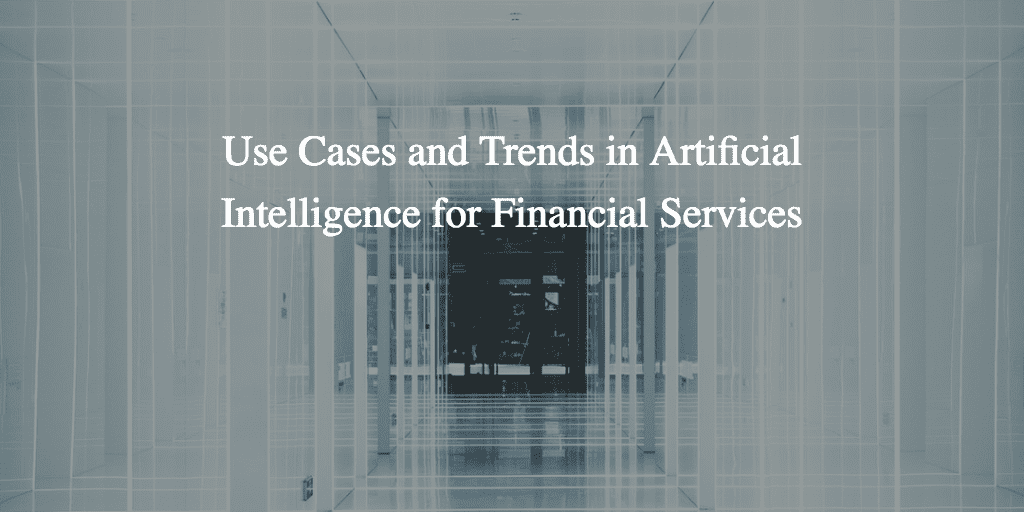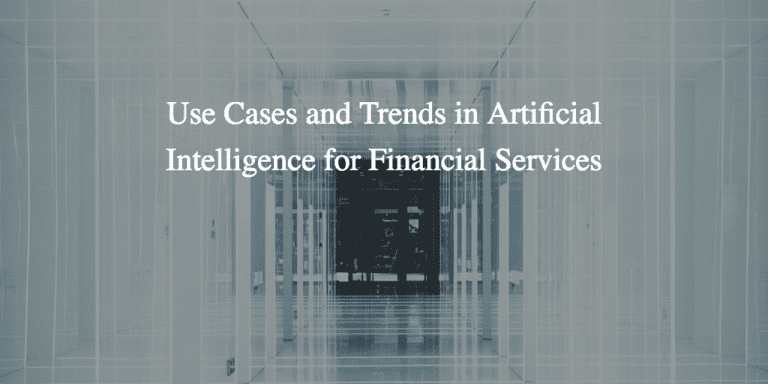
Artificial intelligence (AI) is everywhere these days as more companies look to automate repetitive tasks to save money and reallocate staff to more meaningful work. We wanted to explore some of the current use cases for AI based technologies in financial services and where the industry is heading in the coming years.
Cut through the hype and you will find financial firms have started to implement AI in a few different areas. Back office operations and data management has been the biggest beneficiary as companies can run algorithms across full data sets and cut out repetitive tasks.
A new report by Capgemini states that the financial services industry can add more than $500bn in revenue by implementing automation. Bank of America has long automated tasks such as counting money, reading checks and gathering financial data about corporate borrowers.
Speaking at an event in May Bank of America tech executive David Reilly said their top uses for AI include chatbot, fraud detection and trading. This has forced the bank to perform a bit of a balancing act as many workers have begun to get scared about their jobs going away.
Robotic Process Automation is another buzzword term of late. RPA, as it is frequently referred to, consists of bots that are mainly observing, following simple rules and making yes-or-no decisions. IBM, Oracle and Microsoft have started to explore the RPA market by partnering with UiPath and Automation Anywhere. Financial services companies are no longer outsourcing work to emerging markets like India but are instead using RPA to handle balancing books and matching transactions.
Communication is fast becoming a key way for fintech companies and banks to use AI. Most financial websites and mobile apps now have an automated chatbot to help answer simple questions like what is my account balance and can you transfer money to my savings account.
Capital One, Wells Fargo, Swedbank, SEB and Bank of America have all implemented chatbots through web, text messages and mobile apps. Fintech firm TrueAccord is using AI to improve the debt collection process. The company collects data on how best to communicate with customers then uses their AI engine to push messages out. Understanding how clients like to be contacted has helped the company to improve debt collection rates.
Looking beyond some of the simple uses of AI based technologies and you will find some recent announcements that show how innovative and powerful the technology can be.
In February 2017 we covered IBM’s acquisition of Promontory Financial Group that helped combine IBM’s Watson technology with the more than 600 compliance experts. The partnership used Promontory’s professionals to help train Watson, which learned by ingesting regulatory information as it was created and through interactions in real-world applications.
More recently Barclays contracted a deal with AI simulation firm Simudyne Technology. Barclays is looking to leverage the firm to help make better decisions in trading, lending and risk management. Simudyne forecasts millions of potential scenarios so Barclays can better understand what might happen in certain instances. This would move the bank away from relying on historical data but instead allow them to forecast out models.
This is only a small snapshot of what financial firms are doing with artificial intelligence. As you can see the uses can range from the very basic to complex modeling.
Most firms have said AI and machine learning will not eliminate jobs but enhance them. This might be true in the short term as most companies are just getting their hands around using these new technologies. In the long term they will need to address how much automation can be done and how many lower end workers will wind up being cut.


